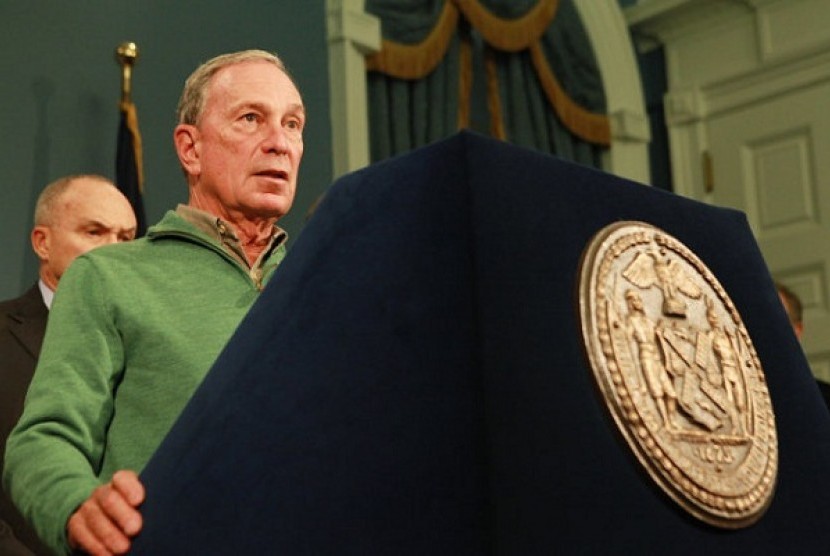REPUBLIKA.CO.ID, NEW YORK — Mayor Michael Bloomberg tried to sell the New York City Marathon as a symbolic victory for the city after a devastating storm, invoking two of the biggest symbols of them all — Rudy Giuliani and 9/11. Later that day Bloomberg cancelled the 2012 New York Marathon amid growing public pressure.
The former mayor, Bloomberg said, made the right decision by holding the marathon less than two months after the 2001 terror attacks: "It pulled people together, and we have to find some ways to express ourselves and show our solidarity with each other."
Then, he kept talking. "You have to keep going and doing things, and you can grieve, you can cry and you can laugh all at the same time," he said.
And once again, the city cringed, hearing another false note that renewed familiar criticism that New York's billionaire businessman mayor is tone-deaf to suffering during a crisis. By the time the mayor changed course three hours later Friday and called off the world's largest marathon, he had already offended a passel of flood-weary New Yorkers.
"He is clueless without a paddle to the reality of what everyone else is dealing with," fumed Joan Wacks, whose waterfront condo in Staten Island was under 4 feet of water. "He's supposed to be the mayor of all the city, but he's really the mayor of Manhattan."
It was a rare reversal for Bloomberg, who's known for sticking by his decisions, however unpopular. He's built a reputation for being an efficient, independent-minded pragmatist in office, a philanthropist and public health innovator, and he has gotten praise for the city's preparedness for the storm.
But at times, people say he lacks empathy for the people he leads. There was the post-Christmas blizzard that dumped 2 feet of snow on the city in 2010, when the mayor raised hackles by encouraging New Yorkers to enjoy the snow or see a Broadway show to help the city's economy. Residents said the mayor failed to appreciate the outer-borough New Yorkers stranded by snow drifts that hadn't been plowed, unable and without the money to go to the theater.
All this week, the mayor kept returning to economics when defending his decision to keep the marathon going. Officials said the marathon brings in 340 million USD; it was unclear how much the city still stands to get from the thousands of runners already in town.
"For those who were lost," he said earlier this week, "you've got to believe they would want us to have an economy and have a city go on."
He faced criticism from everyone from sanitation workers unhappy that they had volunteered to help storm victims but were assigned to the race, to police union leaders, to the Manhattan borough president to his ally, City Council Speaker Christine Quinn.
Melanie Bright, who went three days without electricity and hot water, said the mayor didn't get it. "He feels like we should carry on with our lives, even though people have lost everything," she said.
In a sign of how swiftly the tide turned, City Hall told local officials well into midafternoon that the race was on, according to a person familiar with the situation, speaking on condition of anonymity to discuss behind-the-scenes conversations.
Ultimately, Bloomberg canceled the event.
"We cannot allow a controversy over an athletic event — even one as meaningful as this — to distract attention away from all the critically important work that is being done to recover from the storm."
The decision quickly drew praise from some of the same officials who had slammed the marathon schedule hours earlier. The mayor made a "sensitive and prudent decision that will allow the attention of this city to remain focused on its recovery," said Manhattan Borough President Scott Stringer.
But for Eddie Kleydman, motioning toward huge piles of ruined furniture in his Staten Island street, the mayor's last-minute change of heart wasn't enough.
"He's worried about the marathon. I'm worried about getting power," Kleydman said. "So he called it off. He has to come here and help us clean."


